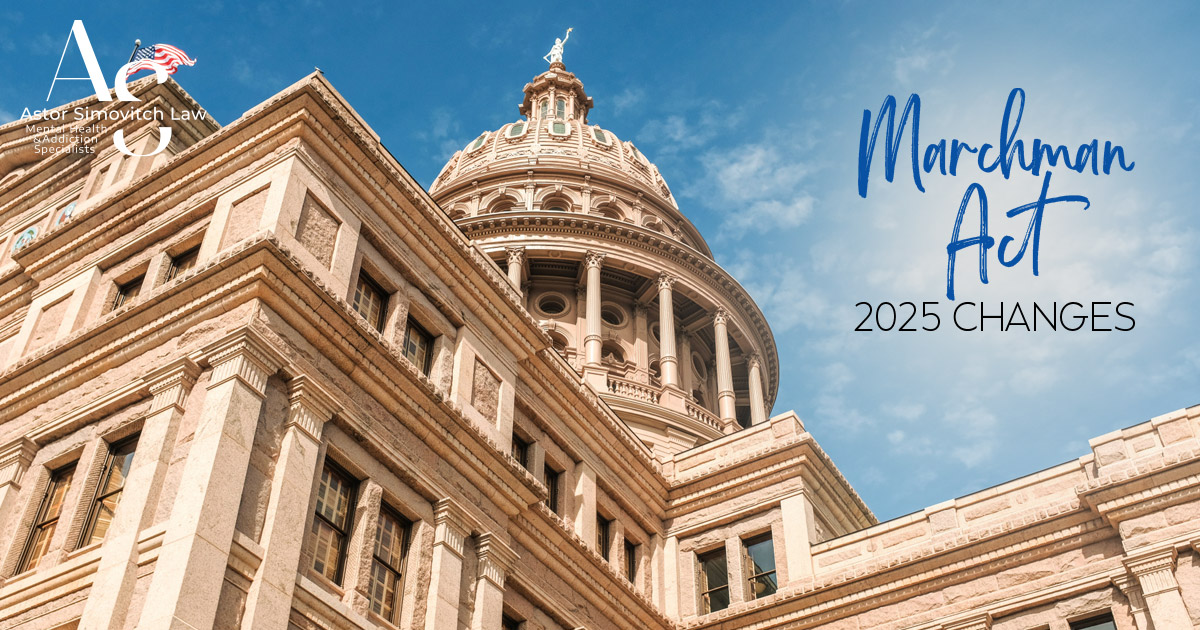2025 Marchman Act Changes

Since its enactment in 1993, the Marchman Act has played a pivotal role in ensuring that people struggling with substance dependency and addiction benefit from medical and therapeutic interventions.However, the Act has not been without its critics, and three decades on from being passed into law, many of its provisions are outdated or over-complicated. In mid-2024, several amendments were made to both the Marchman Act and its sister legislation, the Baker Act. These amendments were passed with the intention of streamlining the involuntary admission process, ensuring that treatments can be tailored to the needs of the individual, and providing more efficient access to emergency treatment.
In this article, we take a look at recent changes to the Marchman Act, and discuss their potential impact on the provision of addiction care in Florida.
House Bill 7021 Is Signed Into Law
In June 2024, Governor DeSantis signed House Bill 7021, a package of extensive mental health and substance abuse legislative reforms, into law. In terms of the bill, $50 million was appropriated from the Florida budget to fund the wide-ranging reforms it introduced to the Marchman Act and Baker Act.
Many analysts have hailed the enactment of the bill as crucial to ensuring Floridians will benefit from enhanced mental health and substance abuse support, with more efficient admission processes, the improved delivery of emergency treatment services, and a more straightforward petitioning process.
While the bill is not without issues – for example, many are concerned about the wider discretion granted to law enforcement officials to initiate involuntary Baker Act admissions – it is generally hoped that the changes it introduces will lead to better health outcomes for Floridians struggling with addiction.
Overview Of Key Changes To The Marchman Act
House Bill 7021 introduced many changes to the Marchman Act, and many Marchman Act attorneys are still grappling with the import of its new provisions and consequential adjustments to court procedures. We discuss some of the more notable changes below.
Involuntary outpatient treatment
One common criticism of the Marchman Act has been that it is too blunt a legal instrument – in other words, it doesn’t allow for more tailored treatment options that better suit the unique needs of those it is intended to help. Now, the Florida legislature has made an effort to remedy this by including specific provisions for the provision of involuntary outpatient treatment services.
Petitioners can now bring a petition specifically for involuntary outpatient treatment services, and the court can order that a person join an involuntary treatment program in appropriate circumstances. This will help to ensure that the least restrictive means are used to help those battling addiction: where they can be helped without having their freedom of movement taken away, this strikes a much better balance between individual rights and ensuring people get the treatment they need. The Act also includes new provisions to ensure that those in outpatient treatment remain in treatment.
Streamlined emergency provisions
The amended Marchman Act now provides for a streamlined process when the petitioner alleges that emergency circumstances exist that require their loved one to be taken into custody and delivered to a treatment center without receiving notice of the hearing. The court may decide the case on the contents of the petition alone. In emergency Marchman Act cases, a person may be held for up to 72 hours. One of the exceptions to this requirement that has been introduced under the amended Act is withdrawal: if a person who is being held following an emergency petition is experiencing withdrawal, they may be held longer for detoxification treatment.
Virtual witness statements allowed
During the court hearing to decide a petition for involuntary treatment services, witnesses – such as family members or friends – provide testimony concerning their loved one’s substance abuse disorder. The amended Act now permits this testimony to be given virtually. This is particularly helpful when the petitioner or the witnesses in their case are located out-of-state – a common occurrence when families from states without equivalent legislation use the Marchman Act to help loved ones get into treatment.
Data collection
The new Marchman Act now includes provisions requiring the Florida health department and the Louis de la Parte Florida Institute, based at the University of South Florida, to compile and analyze data on Marchman Act admissions and outcomes across Florida. The Institute is obliged to publish its findings in an annual Marchman Act report, with recommendations for implementation issues, resource allocation, and so on. The intention is that these annual reports are then used to guide further changes to the Act. The reports will also help to monitor levels of substance abuse across the state, and how these levels change over time or after targeted public health or socio-economic interventions.
Arrange A Consultation With Florida’s Leading Marchman Act Attorneys
At Astor Simovitch Law, we are proud to be leaders in the field of mental health and substance abuse legal interventions. We are adept at adjusting to legislative changes and have already helped countless families to navigate the new Marchman Act provisions and ensure their loved ones receive the treatment and rehabilitation they need to make a full recovery from addiction.
For compassionate service from an experienced team of Marchman Act attorneys who will be by your family’s side every step of the way on the journey towards healing from substance abuse, contact us today at 561-419-6095.